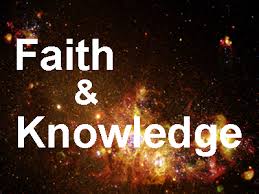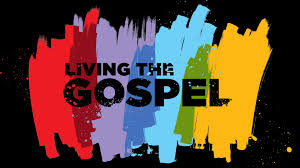
(Some housekeeping matters first… This is the last of the 2016 Lenten Devotionals. Going forward, I will be posting thoughts on various topics once a week. I encourage you to check back here and become a part of the discussion. Also, it has come to my attention that those who access the blog on their mobile devices have a hard time finding the +Follow button. I realize it takes some effort but it’s there. The benefits of following the blog is that the blog comes to you, in your email, every time I post something. If you are interested in following the blog but don’t want the hassle of looking for that pesky button, comment on this post with your email and I will make sure you get them in your email going forward. Your email will be kept secret and your privacy guarded, I promise. With that said, Happy Easter to all of you, my dear friends. Now read on!)
Today is Maundy Thursday, or Holy Thursday, if you prefer. I prefer Maundy Thursday myself. This is another one of those holy days leading up to Good Friday and of course, Easter morning. What is Maundy Thursday you ask? It’s the remembrance of what Jesus did for his disciples before instituting the last supper. The word ‘Maundy’ originates from the Middle English word ‘maunde.’ This is related to the Latin ‘mandatum’ which means command or mandate. Jesus washed his disciples’ feet, explained his actions action and encouraged, ‘mandated’ that his disciples do the same for each other (John 13:12-17)
Truth be told, this act of foot washing, now heralded and recognized as one of the most intimate and pivotal moments in Jesus’ life and in his relationship with his disciples, only occurs in John’s gospel. Matthew, Mark and Luke don’t even mention it. Perhaps this is because washing someone’s feet dirtied by walking on dusty roads was a task so menial that even slaves were not required to perform it. In writing their gospels, First Mark, then Matthew and Luke focused on the ‘larger than life’ Jesus who was portrayed in a divine light. But John knew a different side of Jesus and was determined to tell us about it.
Peter knew Jesus, or saw him, as a figure of might and power. One who commands the seas and elements to obey him, drive out demons, and intimidates both the Romans and the Jewish leaders. Judas saw Jesus as a meal ticket and a way to rise to the top of the food chain. The other disciples had their own expectations and saw Jesus as a figure of their own design. But John saw Jesus differently. John saw Jesus for the person he tried to be. John saw the loving, compassionate, humble Jesus, who lowered himself to the point where Peter (who saw the powerful and mighty Jesus) protested such a humiliating, servile act.
What makes Maundy Thursday maundy is that Jesus, according to John, gave his disciples and example to follow and told us to do the same. Obviously, this doesn’t mean that we wash each other’s feet literally. It’s what it represents. It’s what the Christian faith represents. That’s the point of Maundy Thursday.
The Christian faith is all about service, even to the point of humiliation. It’s a faith that asks not ‘what’s in it for me?’ or ‘what have you done for me lately? #JanetJackson. Instead it asks, ‘what have you done for others’ in need lately?’ How do our actions reflect the loving, compassionate, humble Jesus? To be a Christian or a person of faith is to be like Jesus, who sought neither fame nor power, but lived to show others the way to life, freedom and peace. He washed his disciples’ feet for crying out loud! Isn’t it about time that we practice what Jesus practiced ourselves in doing works of justice and works of righteousness? Given the climate of today’s culture and recent politics, this may be hard to grasp and even harder to practice, but this is our Maunde, our Mandatum. Go wash someone’s feet.
“Lord, make me an instrument of thy peace.
Where there is hatred, let me sow love;
Where there is injury, pardon;
Where there is doubt, faith;
Where there is despair, hope;
Where there is darkness, light;
Where there is sadness, joy.
O divine Master, grant that I may not so much seek
To be consoled as to console,
To be understood as to understand,
To be loved as to love;
For it is in giving that we receive;
It is in pardoning that we are pardoned;
It is in dying to self that we are born to eternal life.”
– Francis of Assisi








